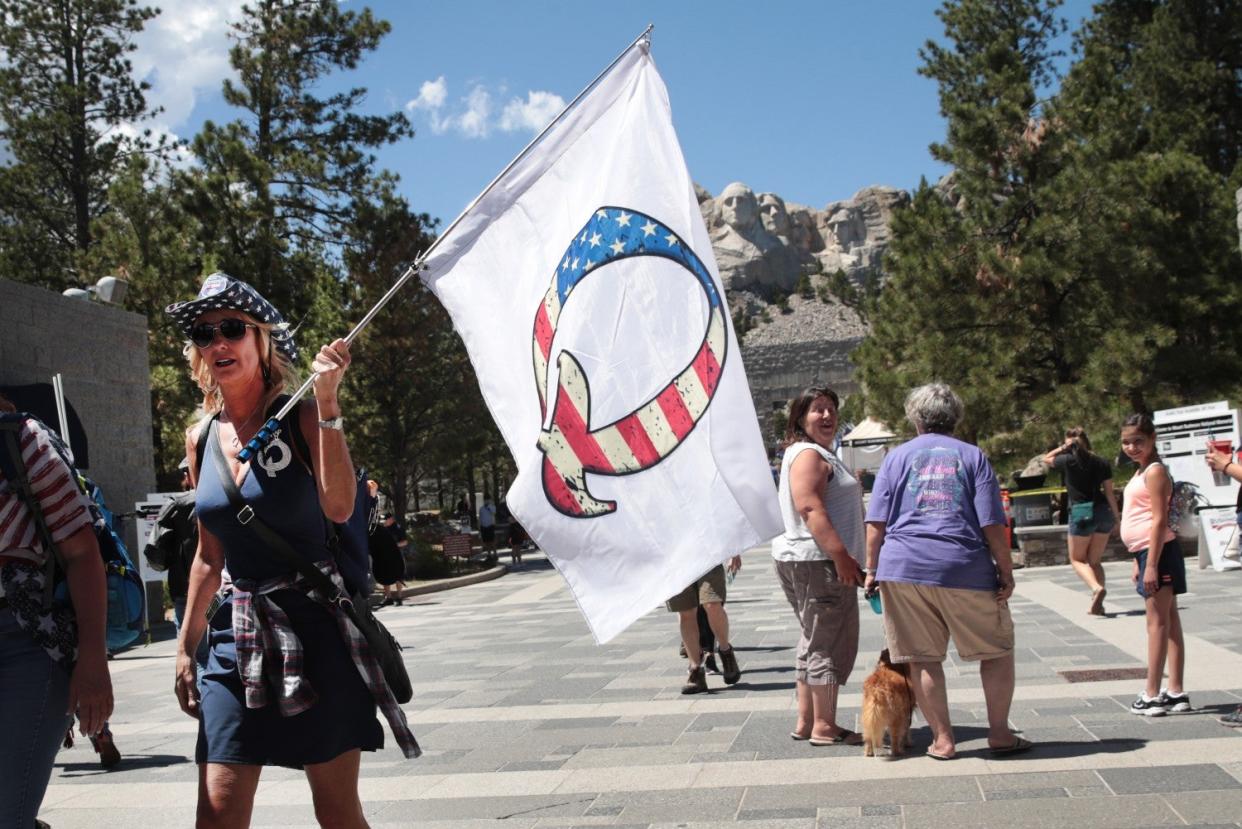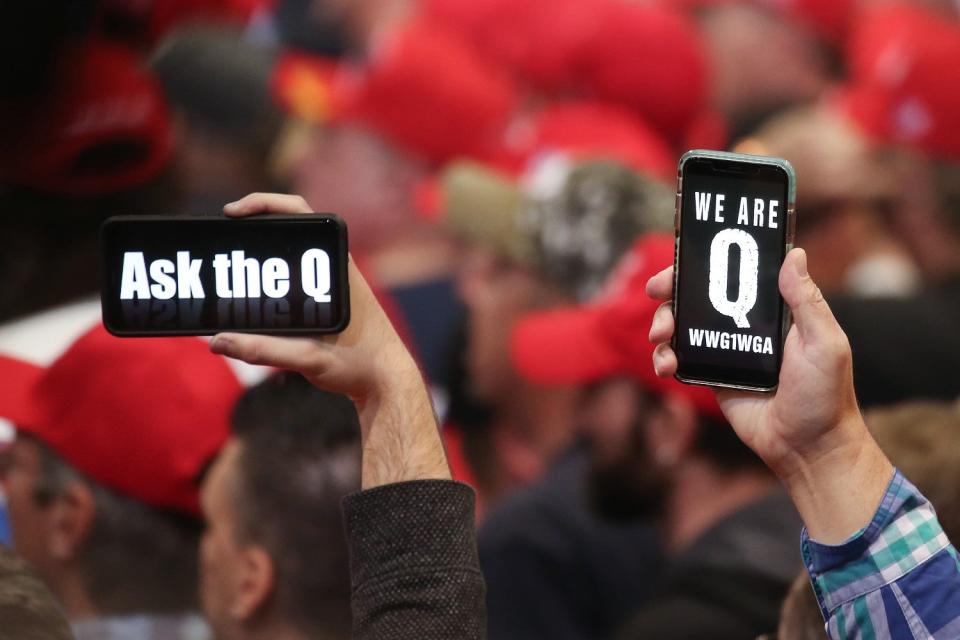What is the QAnon conspiracy and why have Facebook and Twitter removed accounts linked to the group?

If you don't spend a lot of time on the internet you might not have come across QAnon before.
The far-right conspiracy theory group has been in the news recently after being banned from using Twitter as well as Facebook removing 800 QAnon-linked groups with posts celebrating violence.
In a statement, Twitter said it will permanently suspend accounts tweeting about these topics, and it will no longer serve content and accounts associated with QAnon in Trends and recommendations, and it will block URLs associated with the group from being shared on the platform. Facebook has said it will no longer recommend QAnon linked groups to users and make them less likely to be discovered in searches.
But what is QAnon and why is it such a risk? What impact will the social media giants' new policies have on the group? Here’s what you need to know.
What is QAnon?
QAnon, as a concept, first popped up on the internet back in October 2017 when an anonymous poster on the platform 4chan, using the account name Q, said it had classified information involving the Trump administration and its opponents in the US.
Essentially, the account Q which spread across different social platforms accused a roster of Democratic politicians, Hollywood actors and other high-ranking officials of being members of an international child sex trafficking ring, such as Hillary Clinton and President Barack Obama amongst others.
In 2016, a gunman opened fire in a pizza restaurant in Washington DC, saying that a child trafficking ring was being run out of the basement and Clinton was involved. Though this took place before the initial launch of QAnon, the two are linked, with QAnon being described as an “offshoot” of Pizzagate. This recently popped up again in the news with Robbie Williams claiming "the right questions haven't been answered" about the theory, and Chrissie Tiegen saying she is regularly targeting by QAnon conspiracy theorists.
QAnon is almost like a different version of the Illuminati, in that the general idea is, according to the Washington Post’s Travis View, who also hosts the QAnon Anonymous podcast, that there is “a worldwide cabal of Satan-worshipping pedophiles who rule the world, essentially, and they control everything”, including politicians, the media and Hollywood.
However, this group does not control US president Donald Trump, who apparently knows everything about what the cabal is doing, and wants to put an end to it. Trump has retweeted QAnon accounts in the past.
Why is QAnon seen as a risk?

In recent months, the conspiracy theory has been linked to spreading coronavirus misinformation and coordinated harassment about individuals they have accused of being linked to child sex rings, according to Wired.
There’s even evidence the group’s actions online have led to real violence, and it’s also been linked to at least one alleged murder: Anthony Comello, who was accused of killing a mob boss in New York, claimed he did so because his victim was a part of the “deep state” and scrawled QAnon-related symbols and phrases on himself for one court appearance.
Not only this, but the conspiracy is picking up traction amongst potential Republican politicians in the US. Recently, a QAnon supporter, Marjorie Taylor, won the Georgia Republican primary, meaning she will potentially gain a seat in the House of Representatives. The BBC said she could become QAnon's first devotee in Congress.
According to Reuters, when asked about the QAnon idea that Trump was saving the world from satanic cannibals, the president said: “Is that supposed to be a bad thing? ... We are saving the world, from a radical left philosophy.”
What are the social platforms doing about it?
In July Twitter banned and suspended accounts posting about QAnon-related topics. It’s thought the action will affect about 150,000 accounts. In particular, this activity will prohibit “swarming” — when particular individuals are targeted by coordinated harassment campaigns by QAnon followers.
We’ve been clear that we will take strong enforcement action on behavior that has the potential to lead to offline harm. In line with this approach, this week we are taking further action on so-called ‘QAnon’ activity across the service.
— Twitter Safety (@TwitterSafety)
Twitter is far behind some of the other social platforms, such as Reddit which banned the worst threads related to QAnon back in 2018.
As well, Facebook recently banned one of the biggest QAnon-related groups on the platform for violating its harassment and hate speech policies. The group had 200,000 members and there's thought to be about three million followers of QAnon-related pages and groups on Facebook. It later followed up by removing nearly 800 groups with posts celebrating violence or showing intent to use weapons, and another 980 groups that it said encouraged rioting.
According to the New York Times, the tech giant has been coordinating with Twitter and other social media companies on plans to keep QAnon groups off the social network.
However, there are concerns that this won’t be the end of QAnon online. Some Republican candidates running for office in the US are purveyors of the conspiracy theory and Twitter told CNN’s Oliver Darcy that when it comes to its new policy “currently candidates and elected officials will not be automatically included in many of these actions broadly.”
Read more
Chrissy Teigen blocks 1m Twitter accounts after ‘serious harassment'

 Yahoo News
Yahoo News 
